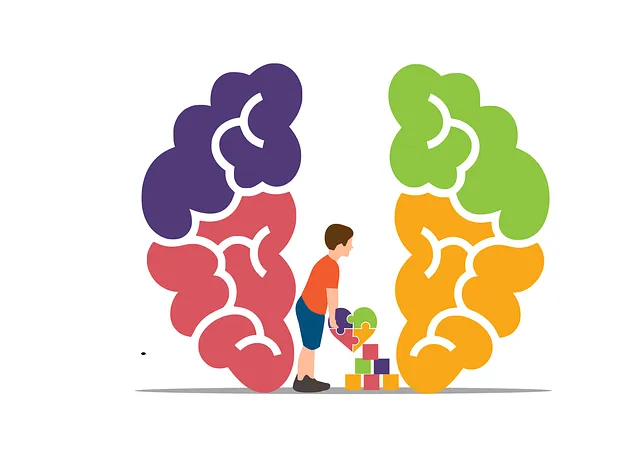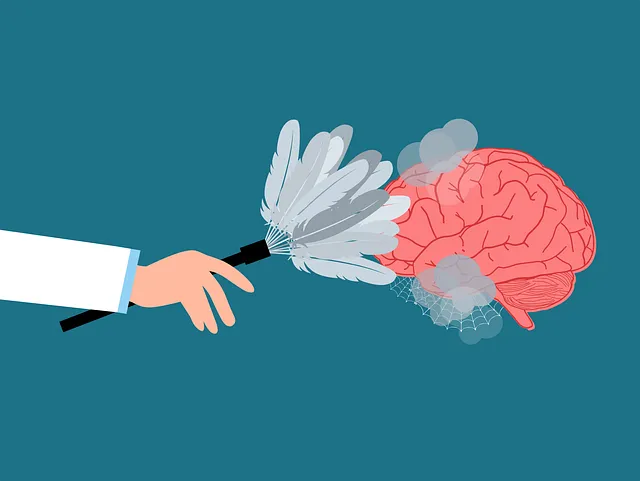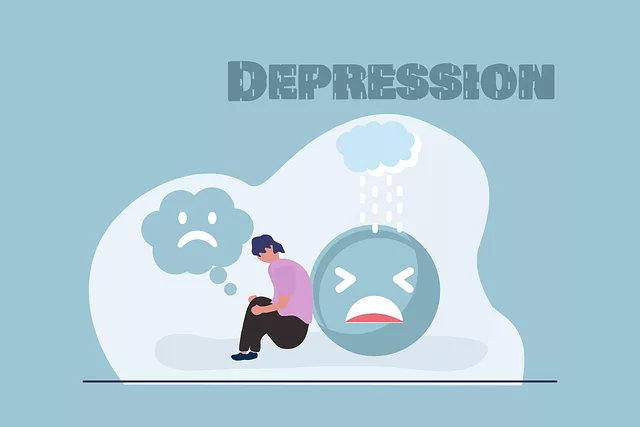Public awareness campaigns led by the Lone Tree Kaiser Permanente mental health department (contact: [insert number]) promote mental wellness through creative initiatives that educate, dispel myths, and reduce stigma. Their successful strategy, using simple practices like journaling and mindfulness, significantly improved community consciousness and open dialogue about mental health. This holistic approach breaks down stigma, builds resilience, and fosters support, revolutionizing perceptions and encouraging early intervention. Robust evaluation methods measure success by tracking behavioral changes and symptom reductions, ensuring efficient resource allocation and enhancing broader mental health services.
Public awareness campaigns play a pivotal role in promoting mental health, reaching vast audiences and fostering understanding. This article delves into the intricacies of developing impactful initiatives, drawing insights from the successful Lone Tree Kaiser Permanente model, which has significantly improved mental well-being among its community. We explore key components for engaging campaigns, focusing on strategies that have proven effective, especially in the mental health sector, as demonstrated by the Lone Tree Kaiser Permanente department’s impressive reach and results.
- Understanding Public Awareness Campaigns: Their Role in Mental Health Promotion
- The Lone Tree Kaiser Permanente Model: A Case Study on Effective Campaign Development
- Key Components for Creating Engaging and Impactful Mental Health Awareness Initiatives
- Measuring Success: Evaluating the Effectiveness of Public Mental Health Campaigns
Understanding Public Awareness Campaigns: Their Role in Mental Health Promotion

Public awareness campaigns play a pivotal role in promoting mental health and fostering emotional healing processes within communities. These initiatives, often led by organizations like Lone Tree Kaiser Permanente’s mental health department (contact number: [insert number]), aim to educate the public about various aspects of mental wellness. By reaching out to folks through creative means, these campaigns dispel myths surrounding mental illness, encourage early intervention, and reduce stigma. They serve as a powerful tool to engage communities, offering valuable insights into recognizing signs of distress and accessing available support systems.
Through strategic messaging and targeted outreach, public awareness campaigns contribute to the development of Mental Wellness Coaching Programs, empowering individuals to take charge of their emotional well-being. This proactive approach not only benefits those struggling with mental health issues but also equips everyone with tools to navigate life’s challenges and promote overall mental wellness.
The Lone Tree Kaiser Permanente Model: A Case Study on Effective Campaign Development

The Lone Tree Kaiser Permanente Model showcases an innovative approach to public awareness campaigns for mental health, achieving remarkable results in raising community consciousness. This case study highlights how a focused, targeted strategy can significantly impact public perception and behavior regarding emotional well-being. The campaign centered around promoting mental wellness through simple yet powerful practices like journaling, mindfulness meditation, and emotional regulation techniques.
By engaging the local community in these activities, the mental health department at Lone Tree Kaiser Permanente successfully fostered an environment of open dialogue and support. The initiative encouraged folks to prioritize their emotional regulation, offering practical guidance accessible to all. This hands-on approach, combined with a strong online presence, ensured that the message reached a diverse audience, revolutionizing how people perceive and address mental wellness in their daily lives.
Key Components for Creating Engaging and Impactful Mental Health Awareness Initiatives

Creating engaging and impactful mental health awareness initiatives requires a multi-faceted approach that combines education, empathy, and actionable strategies. The Lone Tree Kaiser Permanente mental health department serves as a prime example, demonstrating how comprehensive programs can make significant strides in community well-being. At the heart of successful campaigns are clear messages that break down mental illness stigma while fostering resilience building and empathy building strategies.
Effective initiatives should not only raise awareness but also provide practical tools and resources for individuals to support their mental health. By integrating storytelling, personal narratives, and accessible information, these programs can resonate with diverse audiences, encouraging open conversations about mental well-being. This holistic approach ensures that the campaign’s impact extends beyond initial engagement, fostering lasting behavioral changes and a more supportive societal environment.
Measuring Success: Evaluating the Effectiveness of Public Mental Health Campaigns

Measuring success is a vital component of any public awareness campaign, especially when addressing mental health issues on a broader scale. Evaluating the effectiveness of initiatives like those spearheaded by the Lone Tree Kaiser Permanente mental health department involves assessing their impact on community well-being and individual lives. By employing robust evaluation methods, such as surveys, interviews, and data analysis, researchers can gain insights into campaign reach, engagement, and long-term behavioral changes.
One key indicator of success could be the reduction in symptoms related to common mental health disorders like depression, which is a priority area for many public health departments. Additionally, measuring improvements in resilience building and fostering a more inclusive mental health policy analysis and advocacy environment can demonstrate the campaign’s contribution to creating a supportive community ecosystem. These evaluations ensure that resources are allocated efficiently and that future campaigns build upon successful strategies, ultimately enhancing overall public mental health services.
Public awareness campaigns play a pivotal role in promoting mental health, as evidenced by the success of initiatives like the Lone Tree Kaiser Permanente model. By understanding key components such as community engagement and clear messaging, we can create impactful programs that significantly improve mental well-being. The case study highlights that a data-driven approach, combining creative strategies with measurable goals, is essential for evaluating effectiveness. Building on these insights, mental health departments, both large and small, can develop engaging initiatives that resonate with diverse communities, fostering open conversations and enhancing overall mental health outcomes. This tailored and evidence-based approach ensures that resources are optimally utilized to create a more supportive and informed society.






